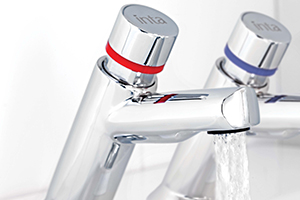The UK has been in the grip of a heatwave for the past few weeks, with the prolonged dry spell creating increasing difficulties across the country enter the Water Efficient Product Labelling Scheme (WEPL).
A hosepipe ban has already been introduced (and lifted) in Northern Ireland, while United Utilities, which services the north west of England, has already warned that a hosepipe ban will be introduced on August 5.
It’s not surprising that the hot weather through most of May, June and July has really focused our minds when it comes to water conservat ion - most of the time we turn on the taps without a second thought, enjoy a long soak in the bath and put the washing machine on even when there are just a few items of clothing to be laundered.
ion - most of the time we turn on the taps without a second thought, enjoy a long soak in the bath and put the washing machine on even when there are just a few items of clothing to be laundered.
Water companies across the country are rightly asking all of us to change our behaviour to save water and the statistics make sobering reading. For instance, turning the tap off when cleaning teeth can save six litres of water, while reducing the time you spend in the shower from eight to four minutes saves 224 litres of water a week. A dripping tap can waste 15 litres a day and is easily fixed.
As a leading bathroom products specialist, water is fundamental to our industry and I hope this hot spell will be the catalyst for all of us to change our attitudes towards water usage.
What we need is a year-round conversation about water-saving methods and devices that will ensure we can all play our part. At Inta, we take water saving seriously and many of our products, such as taps and thermostatic shower controls, meet the Water Efficient Product Labelling Scheme (WEPL).
This scheme was introduced by the Bathroom Manufacturers Association (BMA) in 2007 and we believe that manufacturers and suppliers should promote these labelled products before any others because they are an important tool to reduce water consumption, they are energy efficient and have the lowest carbon footprint.
Let the summer of 2018 leave a real legacy when it comes to water conservation and energy consumption 365 days a year.

Add new comment